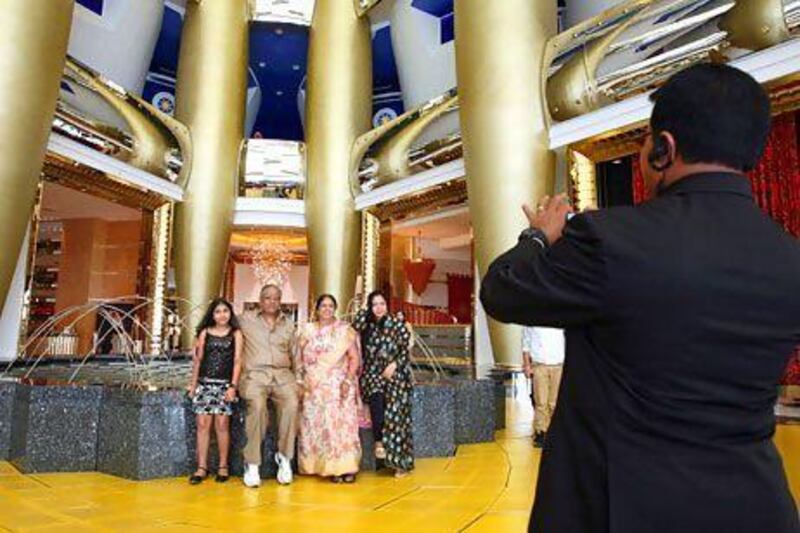More fund managers and traders are bullish going into the new year, dubbing it the "year of equities" for UAE bourses, amid strong economic growth and a recovery in the property sector.
"There's a clear divergence between the real economy in the Emirates and the capital markets," said Nabil Al Rantisi, the managing director of brokerage at Mena Corp, an investment company based in Abu Dhabi.
"The real economy has picked up, hotels have higher occupancy rates, restaurants are full, business is generally better, property prices have picked up, but stocks of companies have not yet picked up ... I think if the momentum maintains, we will see that reflecting in the capital markets in 2013."
The Abu Dhabi Securities Exchange General Index has risen 8.7 per cent so far this year, while the Dubai Financial Market General Index has risen 18.3 per cent in the same period.
The indices have outperformed benchmarks in Saudi Arabia and Qatar, the only one who ended in positive territory last year after the Arab Spring uprisings that toppled leaders in Tunisia, Egypt, Libya and Yemen cut investor appetite for riskier asset classes.
The bullish sentiment of local traders resembles a broader international perspective that equities will improve in the new year, even as the euro-zone crisis and the fiscal stand-off in the United States continue to dominate investment decisions.
According to the consulting group Aksia, which surveyed 169 managers with total assets of US$900 billion, respondents were bullish by a ratio of 3:1, compared to 1.3:1 a year earlier. Fund managers are betting on strategies such as long/short equity, global macro and equity-focused event driven approaches.
"The pressure on the global economies will be released in the new year, and this optimism will ease the tension among the Gulf investors," said Wadah Al Taha, the chief investment officer at Al Zarooni Group, an investment company in Dubai.
"We have different cycles in the financial market. I think the downside trend, which started in 2008, ended in 2012. From a technical point of view, there are positive signals that the market will do better next year."
Regional investors will also be eyeing cues from Iraq over the coming weeks, as the war-torn country is about to witness its first major initial public offering since the US-led invasion in 2003.
Asiacell, a unit of Qatar's Qtel, will offer shares to investors on Jan 1 before listing on the Iraq Stock Exchange on Feb 3, the company said. The share price will be determined on Tuesday.
"There's a lot of regional investor interest for this IPO," said Anastasios Dalgiannakis, the head of institutional trading at Mubasher Financial Services in Dubai. "Iraq is the next bull market."
The Iraqi brokerage Rabee Securities is now the "sole distributor and selling agent" for the share sale, with HSBC no longer the book-runner.
"The absence of global and regional banks providing custody and brokerage services [and] access products makes it difficult to pitch the IPO to international investors, so it will be mainly targeted at local investors," Marc Hammoud, Deutsche Bank's telecoms analyst, told Reuters.
The share sale is one of three mandatory listings on the Iraq Stock Exchange (ISX) by the country's three mobile companies, which include Zain Iraq and Korek Telecom.
Institutional investors are eyeing to see whether changes will occur on the custody side before the IPO, Mr Dalgiannakis said.
At the moment, only local banks can offer custody services, whereas institutional investors would prefer to see foreign custodians, he added.
The ISX General Index dropped to 127.83 points from a peak of 138.18 at the start of the year as a political crisis deepened after the withdrawal of US forces from Iraq last December.
The ISX will be closed for trading on December 27 and will reopen on January 6, it said in a statement posted on its website.





